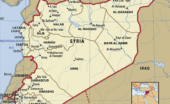Johannah Bernstein post: "eternally proud of my father’s extraordinary aeronautical engineering. legacy. here is a photo of the Canadair Water…
Wednesday Night #1231
Written by Diana Thebaud Nicholson // October 5, 2005 // Herb Bercovitz, Jacques Clément, Reports, Wednesday Nights // Comments Off on Wednesday Night #1231
As the twelfth anniversary of the birth of the European Union approaches on the first day of next month, many see it as a noble but failed endeavor. With the failure to pass referenda indicating complete European support for the proposed constitution and with Germany, seen as the backbone of European unity since its own integration of East Germany, now facing a financial crisis, some are reminded of the conditions which spawned the birth of Nazism.
Unfortunately, many of this generation of North Americans view Germany through the reverse telescope of the 1930’s and 1940’s. It is true that the “law of the blood” has superseded the “law of the land,” that descendents of Germans living in eastern European countries, who spoke no German because they had been forced to adopt the language of their host country, were given instant German citizenship, to the exclusion of others, for example Turkish Immigrants. However, it must be remembered that the former or their parents had been forcibly moved to Eastern European countries during the war. It must also be remembered that a community of escaped Germans of Jewish origin have been repatriated and form a small but important community, especially in Berlin. Proportional representation, despite the problems associated with that type of electoral system, has resulted in growing representation in the German Parliament of minority groups, notably Muslims, but Germany now suffers from important economic and structural problems. The fact that Germany, following the absorption of East Germany and the policy of return of East Europeans of German descent, has succeeded in the integration of twenty-two million poor people into the economy, speaks well of Germany’s continuing resilience.
Prior to the establishment of a central banking system in Europe, these problems could be offset by currency devaluation, but with integration into the union, individual member countries have lost control over monetary policy. With high labour costs and refusal to yield to the temptation of reducing or ignoring environmental considerations, German exports are suffering, causing unemployment.
Germany and France have been the backbone of the European Union since it inception and now, with the failure to elect a majority government, fear and resentment over an increasing Muslim population, especially with the prospect of Turkey joining the Union and a falling Euro versus the U.S. dollar, the national ghosts seem to appear more real.
The failure to gain a clear majority in the recent German elections is perceived by many as near tragic, but what is perceived as totally unacceptable by an electorate in a majority government, frequently becomes quite normal in a minority government. With Gerhard Shroeder’s, Social Democratic Party gaining two hundred and twenty-two seats and Angela Merkel’s Christian Democratic Union Party winning two hundred and twenty-five, with 2% to 2½% of the vote going to the fringe parties, it is increasingly obvious that a coalition government will result. According to the German constitution, the Chancellor is named, not by the party with the greatest number of seats, but by the Bundestag. It is most probable that the process will take up to two months, that neither Merkel nor Schroeder will be named Chancellor, that the fringe parties will soften in their opposition and that the grand coalition will succeed in implementing changes that up to now have been unacceptable, although essential for the future success of Europe.
The case for Turkey’s entry into the European Union appears obvious. Turkey has a stable, democratic government, separation of Church (or Mosque) and state and its contribution to NATO has been praiseworthy. It has the potential for representing a bridge between Christian and Muslim countries. There is, however, a growing fear about the greater birthrate of Muslims in Europe spawning their greater political influence, the possibility of a takeover of the currently secular Turkish government by a radical group, as well as the perception that the European Union should not expand beyond the borders of Europe, thus excluding Turkey. Some Europeans see the countries of the former Yugoslavia as more suitable candidates. However, logic as well as bridge-building, dictate the need to continue with Turkey’s integration into the Union. … the population will mature in the fifteen or so years that it will take, that Turkey will attain full membership and the Muslim population will become fully integrated into Europe.
JACQUES CLÉMENT’S REPORT ON GERMANY
In the second quarter, the economy expanded moderately for the first time in nine months, with increased demand at home and abroad offsetting their concern of over $60.00 crude oil and as the Euro declined over 10% against the U.S. dollar. The world’s third largest economy with Europe’s largest population experienced a rise in investor and business confidence, profits, exports, increased spending in factory machinery and equipment and a rise in inventories. Unemployment remains at a record 11.6% with five million people out of jobs. Siemens is slashing seven thousand jobs. The fiscal deficit is at 3.3% of G.D.P., above the Euro’s limit. Economic growth this year is now expected at 1.1% and 1.3% for 2006. With the European Central Bank’s readiness to increase interest rates for the first time since 2000 and the uncertain political climate following the September 18 election, the perspectives have darkened somewhat.
QUOTES of the EVENING
- It will be difficult but at the end of the day, both (Schroeder and Merkel) will have to withdraw in favor of a third person. The electorate got what it wanted. … It is not only the reforms that count, but who does them (as well).
- It is the first time since the fifties that things are not going up, but the standard of living is still high and left wing parties can be much more successful at letting the medicine slide down.
- There is a change among the German electorate as to the pace of change. The reality is that German labour has priced itself out of the market. They will have to take a 10% reduction in standard of living … not easy to implement. … not only Germany … France as well.
- “In the old days you could compensate by devaluation, but not now…. Italians as well as Germans have the problem. For it to work, inflation has to take place at the same rate throughout Europe … not probable … puts future of the Euro in doubt.
- “Germany decided to make a number of sacrifices for the unification of Europe and the Euro is one of them. They would have been much better off with the Deutschmark.”
- It is true that the German people felt they made a great sacrifice, Deutschmark – Euro, but if it had not happened, there would have been two or three crises and the tremendously costly intervention by the Germans in Italy and France. The only role of the European Central Bank (unlike Canada) is to keep inflation intact.
- Where would Europe be without the Euro?
- If you think of (Europe as) a unified country, Turkey becomes a problem.
- On the surface, Turkey is secular, but under the surface, there appears to be that it could go one way or another. We might be integrating people who may not want to become Europeans (Trojan Horse).
- It is not the tyranny of the majority at the U.N., it is the inability of the big players to get together on an agenda. Transfer from West to East for 10 years was much higher than total Marshall Plan from U.S. (in constant dollars).



